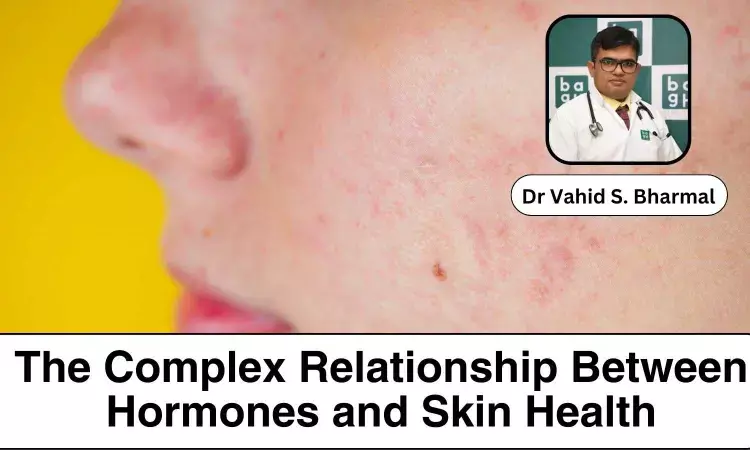- Home
- Medical news & Guidelines
- Anesthesiology
- Cardiology and CTVS
- Critical Care
- Dentistry
- Dermatology
- Diabetes and Endocrinology
- ENT
- Gastroenterology
- Medicine
- Nephrology
- Neurology
- Obstretics-Gynaecology
- Oncology
- Ophthalmology
- Orthopaedics
- Pediatrics-Neonatology
- Psychiatry
- Pulmonology
- Radiology
- Surgery
- Urology
- Laboratory Medicine
- Diet
- Nursing
- Paramedical
- Physiotherapy
- Health news
- Fact Check
- Bone Health Fact Check
- Brain Health Fact Check
- Cancer Related Fact Check
- Child Care Fact Check
- Dental and oral health fact check
- Diabetes and metabolic health fact check
- Diet and Nutrition Fact Check
- Eye and ENT Care Fact Check
- Fitness fact check
- Gut health fact check
- Heart health fact check
- Kidney health fact check
- Medical education fact check
- Men's health fact check
- Respiratory fact check
- Skin and hair care fact check
- Vaccine and Immunization fact check
- Women's health fact check
- AYUSH
- State News
- Andaman and Nicobar Islands
- Andhra Pradesh
- Arunachal Pradesh
- Assam
- Bihar
- Chandigarh
- Chattisgarh
- Dadra and Nagar Haveli
- Daman and Diu
- Delhi
- Goa
- Gujarat
- Haryana
- Himachal Pradesh
- Jammu & Kashmir
- Jharkhand
- Karnataka
- Kerala
- Ladakh
- Lakshadweep
- Madhya Pradesh
- Maharashtra
- Manipur
- Meghalaya
- Mizoram
- Nagaland
- Odisha
- Puducherry
- Punjab
- Rajasthan
- Sikkim
- Tamil Nadu
- Telangana
- Tripura
- Uttar Pradesh
- Uttrakhand
- West Bengal
- Medical Education
- Industry
The Complex Relationship Between Hormones and Skin Health - Dr Vahid S. Bharmal

Similarly, the presence of purple, widened striate on the abdomen and thighs may indicate excessive steroid production or intake. This observation could signal adrenal gland disorders or prolonged use of corticosteroid medications, emphasizing the importance of comprehensive hormonal assessment and management to address underlying hormonal imbalances.
Understanding the complex interplay between hormones and skin health underscores the need for a holistic approach to skincare. Beyond superficial treatments, addressing underlying hormonal imbalances is paramount for achieving optimal skin vitality and overall health.
Dermatologists and endocrinologists are pivotal in collaboratively managing hormonal disorders with dermatological manifestations, ensuring comprehensive care for affected individuals.
In conclusion, the intricate relationship between hormones and skin health sheds light on the multifaceted nature of dermatological conditions. Recognizing dermatological signs of hormonal imbalances is pivotal for early diagnosis and intervention, ultimately promoting skin wellness and overall health. By integrating hormonal assessment into skincare practices, individuals can embark on a journey towards vibrant, resilient skin from within.
Disclaimer: The views expressed in this article are of the author and not of Medical Dialogues. The Editorial/Content team of Medical Dialogues has not contributed to the writing/editing/packaging of this article.
Dr Vahid S. Bharmal MBBS, DM (Endocrinology), MD (Medicine) is a Adult & Paediatric Endocrinologist Consultant at Bhailal Amin General Hospital, Vadodara. With an experience of 8+ years of experience as a General Physician Dr Vahid specialises in in the treatment and management of Diabetes mellitus, Thyroid disorders, Bone Mineral metabolism disorders and Adult/Paediatric endocrinology.


